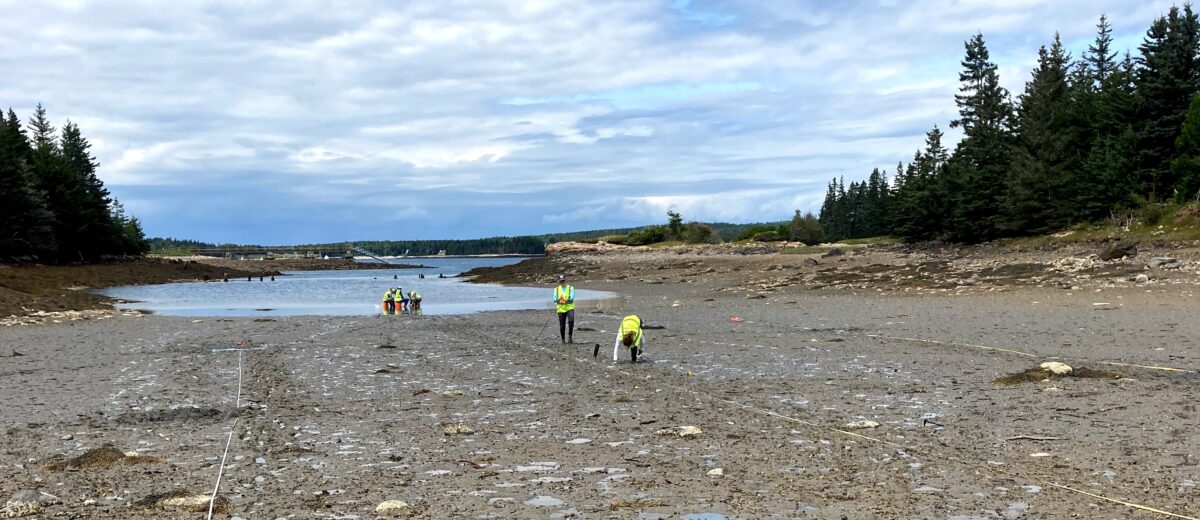We welcome student interns from colleges and universities to assist with multiple projects examining global change impacts to ecosystems in Acadia National Park and the surrounding region. Our internships provide on-the-ground experience with research and mentorship to further interns’ growth as professionals.
Researchers at Schoodic Institute are taking advantage of our unique multi-system setting to explore biodiversity in a changing environment and effects of a changing climate across, and between, these dynamic systems. We take an integrated approach to science. Education and communication are woven into our research and monitoring; our internships reflect this holistic approach to science. Interns develop and practice skills in field research, field identification and scientific research design; in fostering learning through citizen science; and in communicating science to varied audiences.
Interns are paired with a mentor based on intern interests and current work of the mentor. While the work is integrated, interns are expected to focus on one of two core areas–science communication, or science research and monitoring. Examples of core area work include:
- Research and Monitoring: Map and evaluate the health of Acadia’s Eastern hemlock stands and estimate the stress of Hemlock Wooly Adelgid on those stands.
- Research and Monitoring: Hone bird identification and research skills while conducting point count and transect surveys, in the forests and along the coast.
- Research and Monitoring: Design, sample, and analyze data from studies of our changing intertidal zone biota–for
example: what drives tidepool biodiversity? what forest animals eat intertidal animals? when subtidal crabs appear in the intertidal are they more susceptible to bird predation? - Science Communication: Plan and create multimedia content based on the work of field staff for digital and print publications and social media. This is a flexible opportunity that can be tailored to specific interests and desired skills.
Internship Details: Interns will spend much time working in the field, in all weather conditions, hiking through rough terrain, and carrying heavy backpacks; and will also spend time managing and analyzing their data. Co-workers in the outdoors include mosquitoes, black flies, occasional ticks, and dense brush. Interns may also spend time in labs, classrooms (indoor and outdoor), libraries, and archives.
Funding: Interns must work with their appropriate academic internship coordinator to secure funding. We do not support unpaid internships. Interns will work 40-hour weeks, generally Monday-Friday. Internship duration is 8-12 weeks. Gender-inclusive housing through the internship is provided on the Schoodic Institute campus, within Acadia National Park on the Schoodic Peninsula.
Note: The nearest city, Ellsworth, ME, is 45 minutes from the Institute. Qualified applicants must have a valid driver’s license.
Qualified applicants need to be able to work in challenging outdoor conditions, learn on the go, work in small teams, and efficiently collect field data.
How to apply: Send a resume, unofficial transcripts, cover letter, and contact information for two references to search@schoodicinstitute.org by March 4, 2022.
Contact Hannah Webber, hwebber@schoodicinstitute.org with questions about science research projects; and Catherine Schmitt, cschmitt@schoodicinstitute.org with questions about science communication projects.
